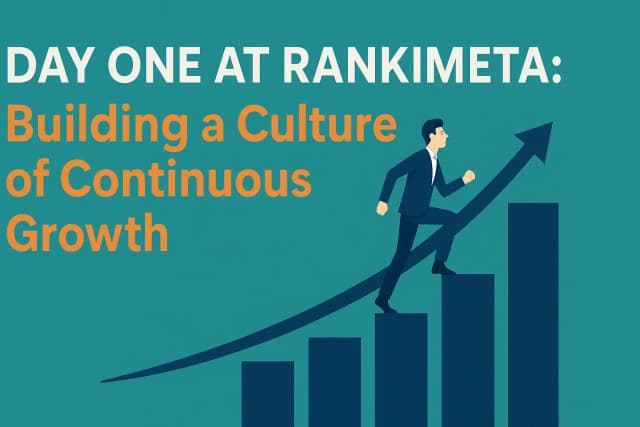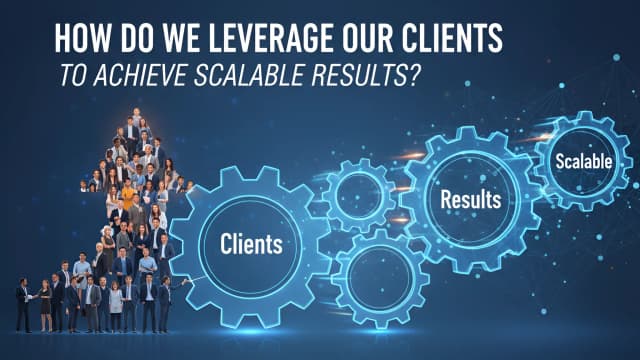- Blog
- Blog detail

Behind every product or service you enjoy as a consumer, there’s often a chain of business transactions that made it possible. That’s where B2B comes in. If you’re into business or planning to start one, it’s essential to know B2B business. Because without understanding the key difference between B2B and B2C, you tend to make minor errors, which might affect your budding business.
Read this blog post to understand the B2B business – meaning, characteristics, difference from B2C, and how to market it the right way.
What is a B2B Business?
Business-to-business or business for business (B4B), or better known as B2B, is an activity in which one business (company) views other businesses (companies) as its clientele. It is where businesses focus on serving the needs of other businesses.
How do you know if a business is B2B?
A business is called B2B when,
- The business buys other businesses’ goods, e.g., a car manufacturing company purchases tires from a tire manufacturing company.
- The business buys other businesses’ services, e.g., a makeup manufacturing company requests a modeling service from a modeling agency.
- The business resells other businesses’ finished goods, e.g., a grocery shop owner buys rice from a rice manufacturing company and then resells it to the consumers.
What are the types of B2B businesses?
There are three types of B2B business.
Vertical: This type of B2B works within a specific industry. For example, ADNOC buys DNV-certified containers from Al Basata, a container manufacturing company. Here, they’re in the same industry doing different jobs.
When businesses purchase goods or services from suppliers (usually raw materials), such as an oil production company buying containers from a container manufacturer, it is referred to as an upstream vertical model. When businesses sell to other businesses (sales of finished goods), such as manufacturers selling to wholesalers, it is referred to as a downstream vertical model.
- Horizontal: This model connects businesses across different industries. For example, a paper manufacturer sells paper to a newspaper company. Here, the former is a manufacturing business, and the latter is a media business.
- B2B2C: In this model, a business sells to consumers through another business. The end goal is to reach the final consumer. For example, a company sells its products through an online store, such as Amazon, to the end customer. Here, Amazon acts as a middleman between the business and its consumer. It falls under the B2B2C model.
B2B vs. B2C – What’s the Difference?
Business-to-consumer (B2C) or direct-to-consumer (D2C) is an activity of business after B2B. Or more specifically, it is the business transaction between a company and its consumers. For example, Al Shabab sells its tour packages to its customers. Here, the company is the business, and the individuals who buy the product are the consumers.
Now, let’s try to understand the key differences between B2B and B2C using a table.
| Aspect | B2B | B2C |
| Target Audience | Other businesses | Individual consumers |
| Product Type | Raw materials, software, consulting, machines, etc | Clothes, food, gadgets, personal services, etc |
| Buying Behavior | Research-based | Impulse-based |
| Decision-Making | Through formal meetings involving multiple stakeholders | Mainly based on individual emotions. |
| Sales Process | Involves longer demos, contracts, and a need to maintain retention | Involves shorter transactions |
| Sales Relationship | This is generally a long-term business that needs strong trust and a personal connection | It is driven by branding, marketing, and customer experience |
| Service Complexity | Often complex involving onboarding, support, or maybe training | Usually simpler, involving easy-to-use, self-service |
| Pricing | Custom and negotiable | Fixed and retail-based |
| Transaction Volume | Higher valued transactions | Less valued transactions |
| Supply Chain | May or may not involve multiple supply chains | Only the final supply chain |
| Legal involvement | Professional/legal teams in contracts | Minimal legal formality, governed by consumer protection laws |
Why is B2B Marketing Tougher?
One of the major reasons B2B marketing becomes challenging is its sales process. B2B marketing cycles are frequently longer than those of B2C. The purchase typically involves formal decision-making, multiple stakeholders, and more complex pricing and cost justification. Closing this contract can take weeks or even months, also hindering ROI forecasting.
B2B marketing is also complex because of the service delivery. Especially when a client’s business requires a unique product or service, the marketing team must advance their work and coordinate to deliver the customer’s targeted product or service.
Dependency on customer business is another major obstacle. B2B businesses have a greater risk in their operations because a small number of significant clients account for the majority of their revenue. If the customer’s business fails or faces a problem, it’s likely to affect your business as well.
Last but not least, B2B marketing is not just marketing; it’s also relationship-building. B2B companies live on customer business retention. They need to build detailed personnel information and a trusting relationship with their client's business. Because of the trust you have created, you will retain your customer. But how do you build this trust through marketing?
How to Market a B2B Business?
Or more precisely, how do we market a B2B business?
B2B marketing can seem daunting, especially if you’re new to this business. Many B2B businesses have great products or services, but often fail to communicate their value clearly in the digital space. Their brand awareness might be stuck, too complex to describe, their online presence scattered, or their marketing doesn't support sales.
Whatever the case may be, we created Rankinmeta to bridge this gap. To help B2B brands simplify their message, show their value, and scale with the right strategy. We exist to bridge the gap between what you offer and what your buyers need to hear.
At Rankinmeta, every B2B business is unique, and so is its audience. We begin with market research. To understand your industry and its competitors. We analyze who your decision-makers are, what their pain points are, and what kind of information they look at before saying “yes” to the product or service. This is where we analyze your ICP (ideal customer profile) and develop a strategy plan tailored to your business.
Once we finalize the ICP, we begin the next process. Solving real-world problems. We build digital marketing assets, craft messages and visuals, tech solutions, and optimized content strategies. Create a brand voice for your business, and strategically position it exactly where your buyers are looking.
We align your marketing with your sales goals, make sure the right people see your brand, understand your offer, and are ready to take action. From lead generation to nurturing and conversion, we focus on growth, reach, and retention.
The Bottom Line
Long-term partnerships, reasoning, and trust are the foundations of B2B operations. Marketing them involves understanding the customer, addressing real issues, and clearly and consistently communicating value. Having a good B2B business growth partner is all it takes to drive your business growth.
Want strategic marketing help? Let’s talk!


